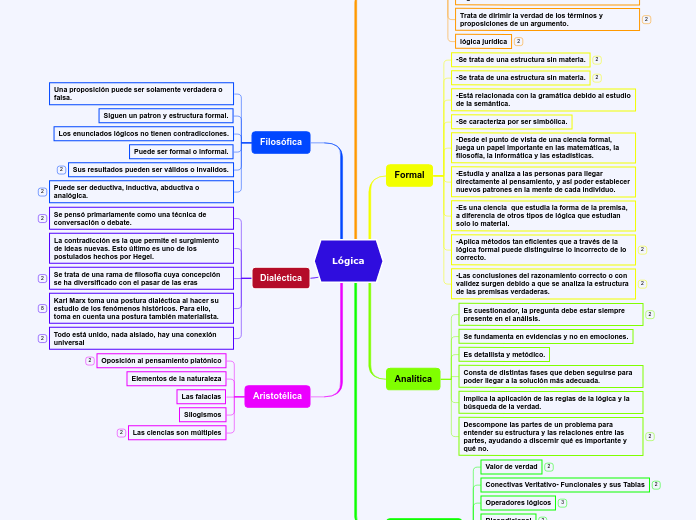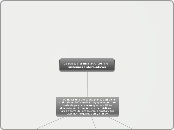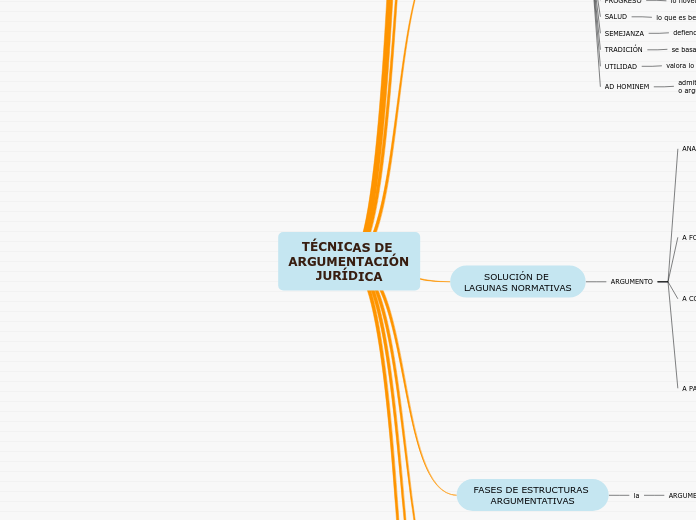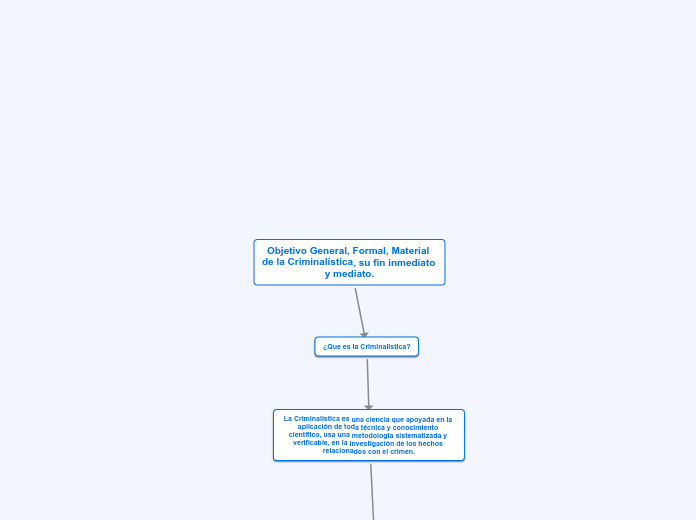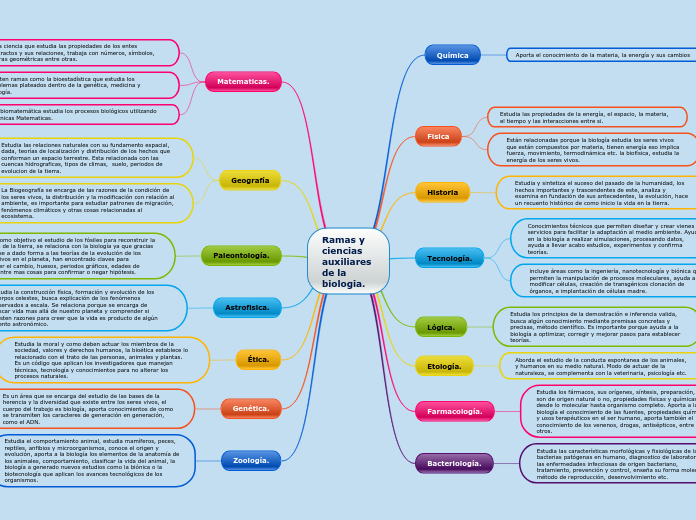Lógica
The part of speech is a category to which a word is assigned according to its syntactic functions. In English the main parts of speech are noun, pronoun, adjective, determiner, verb, adverb, preposition, conjunction, and interjection.
Aristotélica
A conjunction is a word like 'if' 'but' or 'and' which is used to connect sentences or clauses together.
Las ciencias son múltiples
Subordinating conjunctions are conjunctions that are used at the beginning of subordinate clauses. Some examples of these conjunctions are: although, after, before, because, how, if, once, since, so that, until, unless, when etc.
Although it was raining, I went out.
Silogismos
Las falacias
Elementos de la naturaleza
Oposición al pensamiento platónico
Coordinating conjunctions always connect phrases, words, and clauses. They are: for, and, nor, but, or, yet, so.
This stew is savory and delicious.
Dialéctica
An adverb is used to describe a verb, but it can also describe an adjective or another adverb.
Adverbs normally help paint a fuller picture by describing how something happens.
Todo está unido, nada aislado, hay una conexión universal
A lot, Little, Much
Karl Marx toma una postura dialéctica al hacer su estudio de los fenómenos históricos. Para ello, toma en cuenta una postura también materialista.
The intensifiers strengthen adverbs adjectives and adverbs and down- toners make them weaker.
down-toners
Fairly, Rather
intensifiers
Extremely, Very
Se trata de una rama de filosofía cuya concepción se ha diversificado con el pasar de las eras
Just, Afterward, Soon, Currently
La contradicción es la que permite el surgimiento de ideas nuevas. Esto último es uno de los postulados hechos por Hegel.
Se pensó primariamente como una técnica de conversación o debate.
Carefully, Slowly
Filosófica
A numeral is a word or phrase that describes a numerical quantity.
Some theories of grammar use the word 'numeral' to refer to cardinal numbers that act as a determiner to specify the quantity of a noun, for example the 'two' in 'two hats'.
Puede ser deductiva, inductiva, abductiva o analógica.
One, two..
Sus resultados pueden ser válidos o invalidos.
First, second..
Puede ser formal o informal.
Los enunciados lógicos no tienen contradicciones.
Siguen un patron y estructura formal.
Una proposición puede ser solamente verdadera o falsa.
Proposicional
A pronoun is a word that can be used in place of a noun, typically after the noun itself has already been stated.
Conjunción
Unlike demonstrative pronouns, which point out specific items, indefinite pronouns are used for non-specific things. This is the largest group of pronouns. All, some, any, several, anyone, nobody, each, both, few, either, none, one, and no one are the most common.
None, Several
Disyunción débil
Relative pronouns are used to add more information to a sentence. Which, that, who (including whom and whose), and where are all relative pronouns.
Which, Where
Disyunción fuerte
Interrogative pronouns are used in questions. Although they are classified as pronouns, it is not easy to see how they replace nouns. Who, which, what, where, and how are all interrogative pronouns.
Which, Who
Notación
Reciprocal pronouns are used for actions or feelings that are reciprocated. The reciprocal pronouns are each other and one another.
Each other, one another
Bicondicional
A reflexive pronoun ends with ...self or ...selves and refers to another noun or pronoun in the sentence (usually the subject of the sentence). The reflexive pronouns are myself, yourself, herself, himself, itself, ourselves, yourselves, and themselves.
Itself, Himself
Operadores lógicos
Demonstrative pronouns are used to demonstrate (or indicate). This, that, these, and those are all demonstrative pronouns.
This, These
Conectivas Veritativo- Funcionales y sus Tablas
Possessive pronouns are used to show possession. The possessive pronouns are mine, yours, his, hers, ours, and theirs.
His, Your
Valor de verdad
The personal pronouns are I, you, he, she, it, we, they. More often than not (but certainly not always), they replace nouns representing people.
He, They
Analítica
An adjective is a word that's used to describe a specific noun and to provide more detail to the listener.
Descompone las partes de un problema para entender su estructura y las relaciones entre las partes, ayudando a discernir qué es importante y qué no.
Superlative adjectives demonstrate a higher level of comparison between entities.
She is the prettiest princess.
Implica la aplicación de las reglas de la lógica y la búsqueda de la verdad.
Consta de distintas fases que deben seguirse para poder llegar a la solución más adecuada.
Es detallista y metódico.
Se fundamenta en evidencias y no en emociones.
Es cuestionador, la pregunta debe estar siempre presente en el análisis.
Expresses a comparison between two entities or groups of entities in quality or degree.
He is taller than she is.
Formal
A noun is defined as a person, place, thing or idea. Proper nouns always begin with a capital letter. Common nouns, which are general words, such as 'cars,' are not capitalized.
-Las conclusiones del razonamiento correcto o con validez surgen debido a que se analiza la estructura de las premisas verdaderas.
Compound nouns are words where two nouns have been stuck together to make a new noun. Compound nouns should be written as one word, without a hyphen.
Candlestick
-Aplica métodos tan eficientes que a través de la lógica formal puede distinguirse lo incorrecto de lo correcto.
A noun which refers to a group of things/people.
Family, Class
-Es una ciencia que estudia la forma de la premisa, a diferencia de otros tipos de lógica que estudian solo lo material.
-Estudia y analiza a las personas para llegar directamente al pensamiento, y así poder establecer nuevos patrones en la mente de cada individuo.
-Desde el punto de vista de una ciencia formal, juega un papel importante en las matemáticas, la filosofía, la informática y las estadísticas.
-Se caracteriza por ser simbólica.
-Está relacionada con la gramática debido al estudio de la semántica.
Countable nouns are nouns that can be counted, even if the number might be extraordinarily high.
Uncountable nouns are nouns that come in a state or quantity which is impossible to count; liquids are uncountable, as are things which act
like liquids.
Cats, Rain
-Se trata de una estructura sin materia.
Proper nouns are the names of specific people or places. They should always begin with a capital letter.
Mary, Paris
Material
A verb is an action word or 'doing' word that signifies movement in some way.
lógica jurídica
An auxiliary verb helps the main (full) verb and is also called a 'helping verb.' With auxiliary verbs, you can write sentences in different tenses, moods, or voices.
You have been practicing hard.
Trata de dirimir la verdad de los términos y proposiciones de un argumento.
A participle is a verb form that can be used as an adjective or to create a verb tense. There are two types of participles: Present participle (ending -ing) and Past participle (usually ending -ed, -d, -t, -en, or -n).
The winning athlete gets a trophy.
está diseñada para que conduzca a una conclusión lógica
A modal is a type of auxiliary (helping) verb that is used to express: ability, possibility, permission or obligation. The main modal verbs in the English language are: can, could, may, might, must, shall, should, will, would.
I might go to the park if I get my homework done.
se analiza no sólo la forma de sacar conclusiones, sino el contenido mismo de las premisas, de tal forma que al final se tiene que conseguir un resultado que esté de acuerdo con la realidad.
A linking verb connects the subject with a word that gives information about the subject, such as a condition or relationship.
You look exhausted after studying all night.
se preocupa del contenido de la argumentación
A verb with its own meaning: a verb that is not an auxiliary verb.
Create sentences
They have it.
